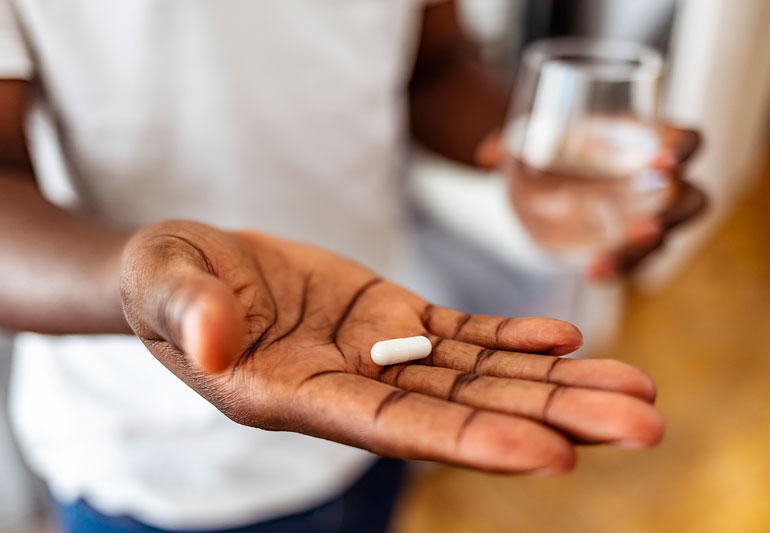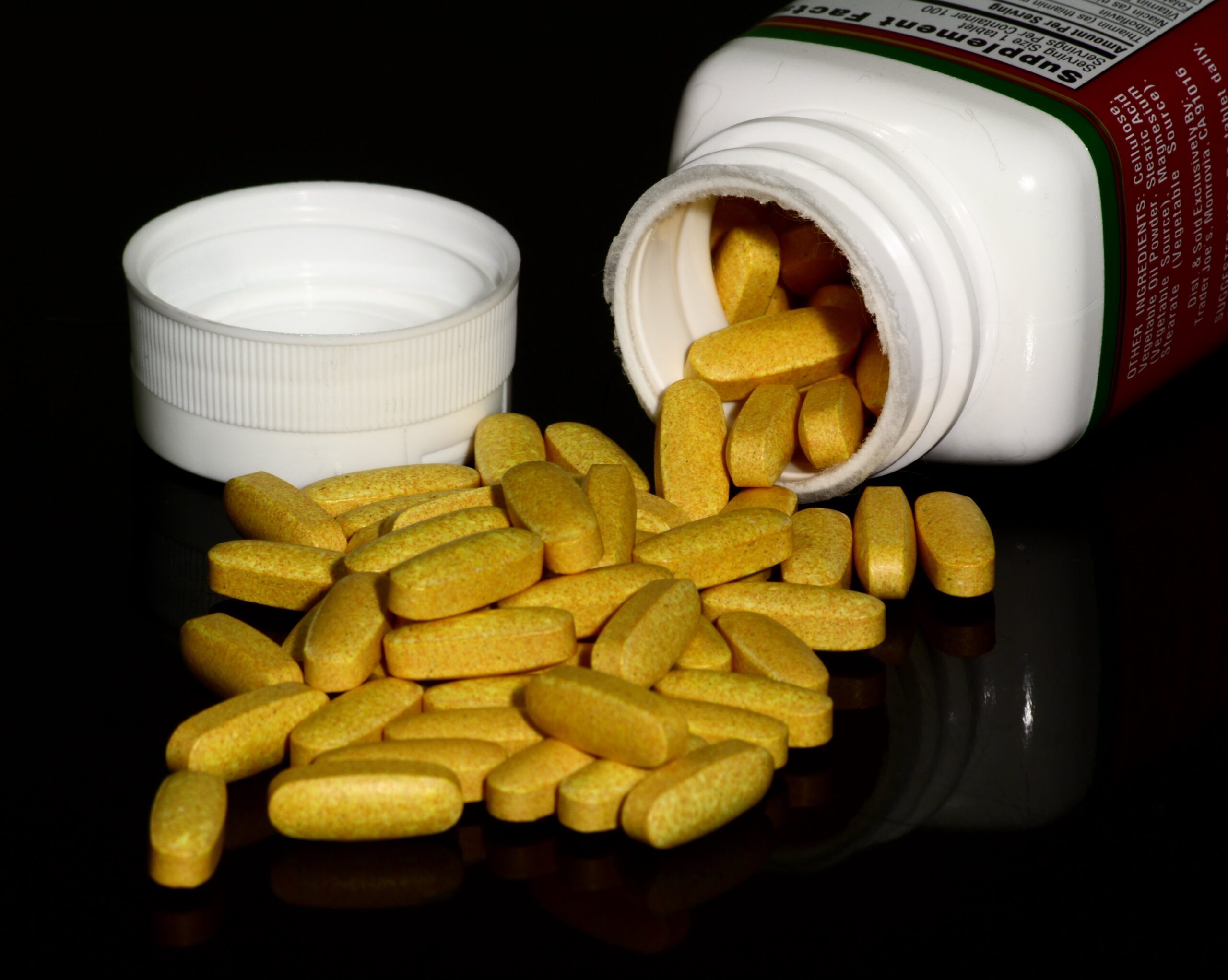It is not uncommon for people to use various vitamin and mineral supplements, as well as a variety of other dietary supplements, to optimize and enrich their diet. And although the use of multivitamins has decreased somewhat in recent years, the use of vitamin D and dietary supplements with omega-3 polyunsaturated fatty acids has increased significantly. Also, buy only reliable pills from trusted brands like caruso natural health vitamins.
Among the most popular dietary supplements are probiotics, omega-3 polyunsaturated fatty acids, multivitamins, vitamin C, turmeric, calcium, and magnesium.
It is worth paying attention to when and how these dietary supplements are taken – for example, with or without food, in the morning or in the evening, before or after training (if you play sports).
The timing and circumstances of the use of dietary supplements can be important in terms of both safety and effectiveness. Certain supplements may also be contraindicated for certain health conditions or if you are taking certain medications.
Here Live Enhanced explores some simple and useful guidelines for using the most common dietary supplements.
Multivitamins

source: pinterest.com
include water as well as fat-soluble vitamins, and sometimes also minerals. They are recommended to be taken half a dose in the morning, during breakfast, and the second half of the daily norm – during the main meal (during lunch or dinner). It is generally safer to take multivitamin dietary supplements with food. For example, B vitamins and vitamin C, when taken on an empty stomach, can cause stomach pain or nausea. Fat-soluble vitamins are of no benefit if taken without a small amount of fat, such as an egg or vegetable oil. In this case, excessive use of fat should be avoided, as this prevents the absorption of water-soluble vitamins from the gastrointestinal tract.
If you use individual vitamins or minerals, you should pay attention not only to the time of their intake but also to the combination with other dietary supplements. So, for example, fat-soluble vitamin K2 is preferably taken with a meal containing some fat, during the day or in the evening.
Calcium

source: clevelandclinic.org
Can be taken during the day, while magnesium is best taken at night and not combined with food. The average healthy person needs about 200 micrograms of vitamin K2 per day, but with the simultaneous intake of high doses of vitamin D, this amount can be higher. People using vitamin K antagonists (drugs that reduce blood clotting) are not recommended to use dietary supplements with vitamin K2, so it is necessary to consult a doctor before using any dietary supplements.
Zinc
Should not be taken with calcium and/or iron as they may interfere with the body’s absorption of zinc.
You should also avoid taking calcium or vitamin E with iron, as they interfere with the absorption of iron.
Magnesium

source: harvard.edu
Which is one of the most important minerals for our body, is best taken in the evening and is not dependent on meals.
If you exercise regularly, consider consuming calcium and magnesium in a 1:2 ratio, respectively, with your pre-workout meal. Although the ideal ratio of magnesium to calcium is considered to be 1:1, most people get much more calcium from their diet than magnesium.
Vitamin B12

source: helpguide.org
Vitamin B12 can interact with various medications, including drugs for bone loss, cancer, gout, high blood pressure, and gastric hypersecretion, such as H2 receptor blockers and proton pump inhibitors, so you should consult your doctor before using it.
The non-digestible dietary fiber. It can interfere with the body’s absorption of fats, so most of these dietary supplements are best taken separately from any polyunsaturated fatty acid dietary supplements. Keep in mind that these supplements slow down the movement of food through the stomach and intestines, so they are best taken at least three or four hours before a workout or competition, or towards the end of the day.
As for dietary supplements with omega-3 PUFAs, they can cause stomach upset if taken immediately before a workout, so it is better to postpone their intake at breakfast time, along with a multivitamin.
Also, keep in mind that krill oil supplements are contraindicated for people with shellfish allergies.
Omega-3 PUFA dietary supplements should not be taken if you have a bleeding disorder or are taking anticoagulants.
Dietary supplements containing bromelain, papain, when taken with food, can improve digestion. Although there is currently no reliable data on the effectiveness of bromelain for reducing muscle soreness after training, if you are taking bromelain for this purpose, then use it on an empty stomach after training, in the morning, or in the afternoon.
Probiotics help to maintain and restore the normal flora of the intestines, supplying beneficial bacteria to our bodies.
Generally, antioxidant dietary supplements such as resveratrol, astaxanthin, vitamin E, ubiquinol are fat-soluble and are best taken with a fatty meal.
Ubiquinol is optimally taken by dividing the daily intake into 2 doses, during the main meals with meals containing fats.
Vitamin E

source: pinterest.com
And astaxanthin can be taken once a day with a fatty meal to increase their absorption.
Taking antioxidant dietary supplements by athletes or regular exercisers just before exercise has the curious effect of reducing insulin sensitivity. It also interferes with the body’s ability to protect itself from oxidative damage. For this reason, antioxidant dietary supplements should be taken before meals and only in case of really difficult competition (training). In all other cases, these dietary supplements should be taken as late as possible after training.
As a general rule, the more varied and nutritious your diet is, the fewer dietary supplements you will need. A healthy diet is the best way to provide the body with all the nutrients it needs.
Vegetarians and vegans may be among the few who really need to consume certain dietary supplements, as many important nutrients are found only in animal products.
Omega-3

source: pennmedicine.org
Polyunsaturated fatty acids, vitamin B12 – these are the very first examples of nutrients that come to mind that people who adhere to a vegetarian or vegan diet receive less. But the lack of any nutrients, vitamins, minerals can cause significant damage to health.
Also, dietary supplements can be very useful for certain macro-and micronutrient deficiencies in your diet. You just have to keep in mind that the more supplements you take, the more difficult it becomes to get it right and with maximum health benefits.




